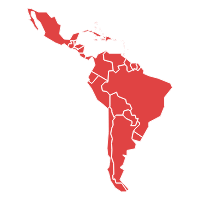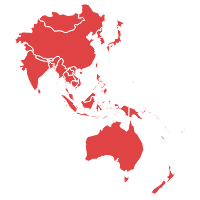- Combined estrogen and progestin pills
- Progestin-only (as Levonorgestrel) pills
- Antiprogestin (as mifepristone) pills
- Ulipristal acetate pills
Emergency Contraceptives Market size was valued at USD 30.2 billion in 2023 and is poised to grow at a significant CAGR of 8.2% from 2024-2030. Emergency Contraceptives Market, provides emergency contraception methods are intended to prevent unwanted pregnancies after sexual intercourse.The commonly used emergency contraceptives are pills and copper-bearing intrauterine devices.Within emergency contraceptive pills are available in 3 compositions namely, combined estrogen and progestin pills, progestin-only (as Levonorgestrel) pills, and antiprogestin (as mifepristone) pills. Emergency contraceptives are different from normal contraceptives. The mechanism of action of the emergency contraceptive methods is delaying or preventing ovulation or fertilization, which is necessary during pregnancy. Both the methods are effective only before the pregnancy testing implanted.
These procedures are ineffective after the implantation occurred. Furthermore, low cost of the products, rise in the adoption of modern emergency contraceptives in developing countries, ease of administration of emergency contraceptive pills, and high effectiveness and convenience in emergency contraceptive devices might boost the global emergency contraceptives pills market. However, adverse effects like nausea, headache associated with the emergency contraceptive pills, lack of skilled professionals for the insertion of intrauterine devices, and product failures in some cases might hamper the market. Market players investing heavily to manufacture emergency contraceptives to increase their share in the market. Launching of new products, collaborations, acquisitions and mergers, approvals as over the counter (OTC) product from various drug regulators such as U.S. Food and Drug Administration, and research and developments are some key strategies followed by various pharmaceutical companies to increase the share in the global emergency contraceptives market.
Emergency Contraceptives Market Key Developments:
- In August 2010, U.S. Food and Drug Administration approved the Ella (Ulipristal acetate pills) as emergency contraceptive pills which are developed by HRA pharmaceuticals.
- In February 2011, Teva Pharmaceuticals received an approval from the FDA for requesting non-prescription status for Plan B One-Step for women under the age of 17.
Global Emergency Contraceptives Market Summary
Study Period
2024-2030
Base Year
2023
CAGR
8.2%
Largest Market
North America
Fastest Growing Market
Europe
Emergency Contraceptives Market Dynamics
The global emergency contraceptives market is expected to grow at an unprecedented CAGR due to the increase in the global female population. Increase in the public awareness in making right decisions about their sexual and reproductive health, technological advancements and an increase in the development of effective female contraceptive drugs and devices, and availability of products in the market might fuel the market.
Key Features of the Reports
- The report provides granular level information about the market size, regional market share, historic market (2019-2023), and forecast (2024-2030)
- The report covers in-detail insights about the competitor's overview, company share analysis, key market developments, and their key strategies
- The report outlines drivers, restraints, unmet needs, and trends that are currently affecting the market
- The report tracks recent innovations, key developments, and start-up details that are actively working in the market
- The report provides a plethora of information about market entry strategies, regulatory framework, and reimbursement scenario

Global Emergency Contraceptives Market Segmentation
By Drug Class
By Distribution Channel
- Hospital pharmacies
- Retail pharmacies
- Online pharmacies
- Others
By Geography
- North America
- Latin America
- Europe
- Asia Pacific
- Middle East and Africa
Frequently Asked Questions
The Emergency contraceptives market size was valued at USD 30.2 billion in 2023
The key segments covered in the Emergency contraceptives market are technology, components, application, and end-users.
The Emergency contraceptives market key players are Gynetics NV (Belgium), Teva Pharmaceutical Industries Ltd. (Israel), Uniprix group (Canada), Gavis Pharmaceuticals LLC, (A Lupin Group Company) (U.S.), HRA Pharma (Paris), Mankind Pharma (India)
| 1. Executive Summary |
| 2. Global Emergency Contraceptives Market Introduction |
| 2.1.Global Emergency Contraceptives Market - Taxonomy |
| 2.2.Global Emergency Contraceptives Market - Definitions |
| 2.2.1.Drug Class |
| 2.2.2.Distribution Channel |
| 2.2.3.Region |
| 3. Global Emergency Contraceptives Market Dynamics |
| 3.1. Drivers |
| 3.2. Restraints |
| 3.3. Opportunities/Unmet Needs of the Market |
| 3.4. Trends |
| 3.5. Product Landscape |
| 3.6. New Product Launches |
| 3.7. Impact of COVID 19 on Market |
| 4. Global Emergency Contraceptives Market Analysis, 2019 - 2023 and Forecast 2024 - 2030 |
| 4.1. Market Analysis, 2019 - 2023 and Forecast, 2024 - 2030, (Sales Value USD Million) |
| 4.2. Year-Over-Year (Y-o-Y) Growth Analysis (%) |
| 4.3. Market Opportunity Analysis |
| 5. Global Emergency Contraceptives Market By Drug Class, 2019 - 2023 and Forecast 2024 - 2030 (Sales Value USD Million) |
| 5.1. Combined estrogen and progestin pills |
| 5.1.1. Market Analysis, 2019 - 2023 and Forecast, 2024 - 2030, (Sales Value USD Million) |
| 5.1.2. Year-Over-Year (Y-o-Y) Growth Analysis (%) and Market Share Analysis (%) |
| 5.1.3. Market Opportunity Analysis |
| 5.2. Progestin-only (as Levonorgestrel) pills |
| 5.2.1. Market Analysis, 2019 - 2023 and Forecast, 2024 - 2030, (Sales Value USD Million) |
| 5.2.2. Year-Over-Year (Y-o-Y) Growth Analysis (%) and Market Share Analysis (%) |
| 5.2.3. Market Opportunity Analysis |
| 5.3. Antiprogestin (as mifepristone) pills |
| 5.3.1. Market Analysis, 2019 - 2023 and Forecast, 2024 - 2030, (Sales Value USD Million) |
| 5.3.2. Year-Over-Year (Y-o-Y) Growth Analysis (%) and Market Share Analysis (%) |
| 5.3.3. Market Opportunity Analysis |
| 5.4. Ulipristal acetate pills |
| 5.4.1. Market Analysis, 2019 - 2023 and Forecast, 2024 - 2030, (Sales Value USD Million) |
| 5.4.2. Year-Over-Year (Y-o-Y) Growth Analysis (%) and Market Share Analysis (%) |
| 5.4.3. Market Opportunity Analysis |
| 6. Global Emergency Contraceptives Market By Distribution Channel, 2019 - 2023 and Forecast 2024 - 2030 (Sales Value USD Million) |
| 6.1. Hospital pharmacies |
| 6.1.1. Market Analysis, 2019 - 2023 and Forecast, 2024 - 2030, (Sales Value USD Million) |
| 6.1.2. Year-Over-Year (Y-o-Y) Growth Analysis (%) and Market Share Analysis (%) |
| 6.1.3. Market Opportunity Analysis |
| 6.2. Retail pharmacies |
| 6.2.1. Market Analysis, 2019 - 2023 and Forecast, 2024 - 2030, (Sales Value USD Million) |
| 6.2.2. Year-Over-Year (Y-o-Y) Growth Analysis (%) and Market Share Analysis (%) |
| 6.2.3. Market Opportunity Analysis |
| 6.3. Online pharmacies |
| 6.3.1. Market Analysis, 2019 - 2023 and Forecast, 2024 - 2030, (Sales Value USD Million) |
| 6.3.2. Year-Over-Year (Y-o-Y) Growth Analysis (%) and Market Share Analysis (%) |
| 6.3.3. Market Opportunity Analysis |
| 6.4. Others |
| 6.4.1. Market Analysis, 2019 - 2023 and Forecast, 2024 - 2030, (Sales Value USD Million) |
| 6.4.2. Year-Over-Year (Y-o-Y) Growth Analysis (%) and Market Share Analysis (%) |
| 6.4.3. Market Opportunity Analysis |
| 7. Global Emergency Contraceptives Market By Region, 2019 - 2023 and Forecast 2024 - 2030 (Sales Value USD Million) |
| 7.1. North America |
| 7.1.1. Market Analysis, 2019 - 2023 and Forecast, 2024 - 2030, (Sales Value USD Million) |
| 7.1.2. Year-Over-Year (Y-o-Y) Growth Analysis (%) and Market Share Analysis (%) |
| 7.1.3. Market Opportunity Analysis |
| 7.2. Europe |
| 7.2.1. Market Analysis, 2019 - 2023 and Forecast, 2024 - 2030, (Sales Value USD Million) |
| 7.2.2. Year-Over-Year (Y-o-Y) Growth Analysis (%) and Market Share Analysis (%) |
| 7.2.3. Market Opportunity Analysis |
| 7.3. Asia Pacific (APAC) |
| 7.3.1. Market Analysis, 2019 - 2023 and Forecast, 2024 - 2030, (Sales Value USD Million) |
| 7.3.2. Year-Over-Year (Y-o-Y) Growth Analysis (%) and Market Share Analysis (%) |
| 7.3.3. Market Opportunity Analysis |
| 7.4. Middle East and Africa (MEA) |
| 7.4.1. Market Analysis, 2019 - 2023 and Forecast, 2024 - 2030, (Sales Value USD Million) |
| 7.4.2. Year-Over-Year (Y-o-Y) Growth Analysis (%) and Market Share Analysis (%) |
| 7.4.3. Market Opportunity Analysis |
| 7.5. Latin America |
| 7.5.1. Market Analysis, 2019 - 2023 and Forecast, 2024 - 2030, (Sales Value USD Million) |
| 7.5.2. Year-Over-Year (Y-o-Y) Growth Analysis (%) and Market Share Analysis (%) |
| 7.5.3. Market Opportunity Analysis |
| 8. North America Emergency Contraceptives Market ,2019 - 2023 and Forecast 2024 - 2030 (Sales Value USD Million) |
| 8.1. Drug Class Analysis 2019 - 2023 and Forecast 2024 - 2030 by Sales Value USD Million, Y-o-Y Growth (%), and Market Share (%) |
| 8.1.1.Combined estrogen and progestin pills |
| 8.1.2.Progestin-only (as Levonorgestrel) pills |
| 8.1.3.Antiprogestin (as mifepristone) pills |
| 8.1.4.Ulipristal acetate pills |
| 8.2. Distribution Channel Analysis 2019 - 2023 and Forecast 2024 - 2030 by Sales Value USD Million, Y-o-Y Growth (%), and Market Share (%) |
| 8.2.1.Hospital pharmacies |
| 8.2.2.Retail pharmacies |
| 8.2.3.Online pharmacies |
| 8.2.4.Others |
| 8.3. Country Analysis 2019 - 2023 and Forecast 2024 - 2030 by Sales Value USD Million, Y-o-Y Growth (%), and Market Share (%) |
| 8.3.1.United States of America (USA) |
| 8.3.2.Canada |
| 9. Europe Emergency Contraceptives Market ,2019 - 2023 and Forecast 2024 - 2030 (Sales Value USD Million) |
| 9.1. Drug Class Analysis and Forecast by Sales Value USD Million, Y-o-Y Growth (%), and Market Share (%) |
| 9.1.1.Combined estrogen and progestin pills |
| 9.1.2.Progestin-only (as Levonorgestrel) pills |
| 9.1.3.Antiprogestin (as mifepristone) pills |
| 9.1.4.Ulipristal acetate pills |
| 9.2. Distribution Channel Analysis 2019 - 2023 and Forecast 2024 - 2030 by Sales Value USD Million, Y-o-Y Growth (%), and Market Share (%) |
| 9.2.1.Hospital pharmacies |
| 9.2.2.Retail pharmacies |
| 9.2.3.Online pharmacies |
| 9.2.4.Others |
| 9.3. Country Analysis 2019 - 2023 and Forecast 2024 - 2030 by Sales Value USD Million, Y-o-Y Growth (%), and Market Share (%) |
| 9.3.1.Germany |
| 9.3.2.France |
| 9.3.3.Italy |
| 9.3.4.United Kingdom (UK) |
| 9.3.5.Spain |
| 9.3.6.Rest of EU |
| 10. Asia Pacific (APAC) Emergency Contraceptives Market ,2019 - 2023 and Forecast 2024 - 2030 (Sales Value USD Million) |
| 10.1. Drug Class Analysis and Forecast by Sales Value USD Million, Y-o-Y Growth (%), and Market Share (%) |
| 10.1.1.Combined estrogen and progestin pills |
| 10.1.2.Progestin-only (as Levonorgestrel) pills |
| 10.1.3.Antiprogestin (as mifepristone) pills |
| 10.1.4.Ulipristal acetate pills |
| 10.2. Distribution Channel Analysis 2019 - 2023 and Forecast 2024 - 2030 by Sales Value USD Million, Y-o-Y Growth (%), and Market Share (%) |
| 10.2.1.Hospital pharmacies |
| 10.2.2.Retail pharmacies |
| 10.2.3.Online pharmacies |
| 10.2.4.Others |
| 10.3. Country Analysis 2019 - 2023 and Forecast 2024 - 2030 by Sales Value USD Million, Y-o-Y Growth (%), and Market Share (%) |
| 10.3.1.China |
| 10.3.2.India |
| 10.3.3.Australia and New Zealand (ANZ) |
| 10.3.4.Japan |
| 10.3.5.Rest of APAC |
| 11. Middle East and Africa (MEA) Emergency Contraceptives Market ,2019 - 2023 and Forecast 2024 - 2030 (Sales Value USD Million) |
| 11.1. Drug Class Analysis and Forecast by Sales Value USD Million, Y-o-Y Growth (%), and Market Share (%) |
| 11.1.1.Combined estrogen and progestin pills |
| 11.1.2.Progestin-only (as Levonorgestrel) pills |
| 11.1.3.Antiprogestin (as mifepristone) pills |
| 11.1.4.Ulipristal acetate pills |
| 11.2. Distribution Channel Analysis 2019 - 2023 and Forecast 2024 - 2030 by Sales Value USD Million, Y-o-Y Growth (%), and Market Share (%) |
| 11.2.1.Hospital pharmacies |
| 11.2.2.Retail pharmacies |
| 11.2.3.Online pharmacies |
| 11.2.4.Others |
| 11.3. Country Analysis 2019 - 2023 and Forecast 2024 - 2030 by Sales Value USD Million, Y-o-Y Growth (%), and Market Share (%) |
| 11.3.1.GCC Countries |
| 11.3.2.South Africa |
| 11.3.3.Rest of MEA |
| 12. Latin America Emergency Contraceptives Market ,2019 - 2023 and Forecast 2024 - 2030 (Sales Value USD Million) |
| 12.1. Drug Class Analysis and Forecast by Sales Value USD Million, Y-o-Y Growth (%), and Market Share (%) |
| 12.1.1.Combined estrogen and progestin pills |
| 12.1.2.Progestin-only (as Levonorgestrel) pills |
| 12.1.3.Antiprogestin (as mifepristone) pills |
| 12.1.4.Ulipristal acetate pills |
| 12.2. Distribution Channel Analysis 2019 - 2023 and Forecast 2024 - 2030 by Sales Value USD Million, Y-o-Y Growth (%), and Market Share (%) |
| 12.2.1.Hospital pharmacies |
| 12.2.2.Retail pharmacies |
| 12.2.3.Online pharmacies |
| 12.2.4.Others |
| 12.3. Country Analysis 2019 - 2023 and Forecast 2024 - 2030 by Sales Value USD Million, Y-o-Y Growth (%), and Market Share (%) |
| 12.3.1.Brazil |
| 12.3.2.Mexico |
| 12.3.3.Rest of LA |
| 13. Competition Landscape |
| 13.1. Market Player Profiles (Introduction, Brand/Product Sales, Financial Analysis, Product Offerings, Key Developments, Collaborations, M & A, Strategies, and SWOT Analysis) |
| 13.2.1.Gynetics NV (Belgium) |
| 13.2.2.Teva Pharmaceutical Industries Ltd. (Israel) |
| 13.2.3.Uniprix group (Canada) |
| 13.2.4.Gavis Pharmaceuticals LLC, (A Lupin Group Company) (U.S) |
| 13.2.5.HRA Pharma (Paris) |
| 13.2.6.Mankind Pharma (India) |
| 14. Research Methodology |
| 15. Appendix and Abbreviations |
- Gynetics NV (Belgium)
- Teva Pharmaceutical Industries Ltd. (Israel)
- Uniprix group (Canada)
- Gavis Pharmaceuticals LLC, (A Lupin Group Company) (U.S)
- HRA Pharma (Paris)
- Mankind Pharma (India)




